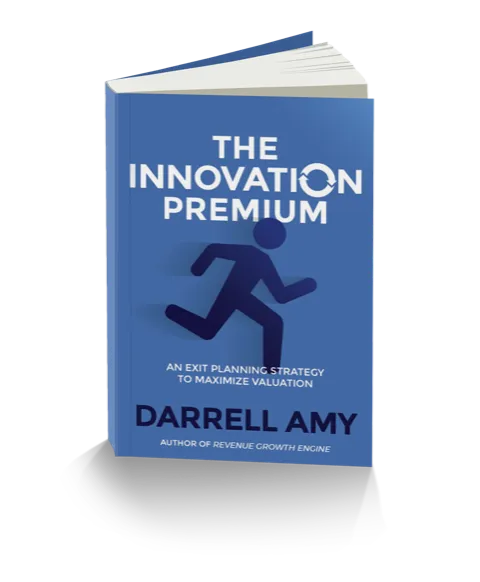THE VALUE CREATION BLOG

Why Value Is the Most Important Metric Every Business Should Track
There are many metrics a business can track: revenue, profitability, and cash flow. The most important metric is value. In this article, we’ll explore why value is the most important metric.
Value is an estimation of what a buyer would be willing to pay for your business. It is the combination of the quantity and quality of profit. Quantity refers to the amount of net profit or EBITDA. Quality refers to the intangible value drivers. (Read The Impact of Quantity and Quality On Business Valuation.)
1. Value Helps You Make Better Decisions
Leading a business requires many choices. When business valuation factors into your decision making process you tend to make better decisions. While metrics like cash flow, revenue, and profitability feel urgent, tracking value helps you keep a longer term perspective. Every decision can be filtered through the question, “How will this help us increase value?” When looking through a list of options to address an issue, you can identify the ones that solve both the short term issue and the long-term value.
2. Value Positively Affects All Parts of the Business
It has been said that a rising tide lifts all ships. When you increase value, you naturally increase the quantitative and qualitative metrics that matter. Focusing on increasing value will lead to growth in revenue and profitability. It also drives decision making and investment around important long-term strategy and culture issues.
Increasing Employee Engagement and Retention
Improving Customer Retention
Driving Innovation
Documenting and Optimizing Core Processes
Reducing Founder/Owner Dependence
Reducing Dependence on an Employee or Large Customer
WhenUltimately, tracking value helps you stay focused on what matters.
3. Value Helps You Prepare For the Unexpected
According to Exit Planning Institute research, almost 55% of business sales are unplanned. Events like death, divorce, disability, and disagreements create the circumstances for businesses to have to sell. Owners that track value, working to improve the value of their company will be better prepared to exit. Since the company is less dependent on them, it will be able to sell at a reasonable market value rather than a discount. They will have a team of engaged employees and loyal customers. Documented processes ensure the business can continue to operate without the owner. An entrepreneurial culture will drive innovation.
Value Is the Measurement of Stewardship
Ultimately, tracking value is good stewardship. As leaders of businesses we are called to be good stewards of what has been entrusted to us. From this perspective, value may be the best metric for stewardship. At the end of the month, quarter, or year, are you leaving your business in a better position than where you started?
Valuation Can Be Accurately Estimated
Unlike revenue and profit which are hard numbers, valuation is an estimate. It is a combination of the quantity of your profit and the quality of the business.
Fortunately, there are tools that can give you a good estimate of the value of your business. We use the Value Builder tool. This algorithm combines data on over 50,000 recent business sales and current industry multiples on EBITDA along your score on 8 Value Drivers. Within 30 minutes you can understand the potential value of your business. You’ll also identify the areas that will have the greatest impact on your value.
Once you have a baseline measurement for your value you can track it quarterly to ensure you are improving in the area that matters most. You might even create a virtual stock price for your company so that your team can understand how decisions are impacting value. (Read Why Every Midmarket Company Should Have a Stock Price.)
If you have not measured the value of your company recently I encourage you to discover your value before the next business quarter begins. Message me to find a good time to talk about how this could work for you.
Originally published on Larry Levine's LinkedIn.
FREE BUSINESS VALUATION
What is Your Business Worth?
You can Discover the Value of Your Business in Less than 20 Minutes!
Join 70,000 business owners and get your score on the 8 Factors That Drive Your Company’s Value, a comprehensive analysis of your score and a detailed action plan for how to improve your score on each.


PREORDER YOUR FREE COPY NOW
Discover How to Create a Premium Valuation for Your Business
Learn how to command a premium multiple on your business
Find out why buyers discount their offers
See how innovation can help you create a premium valuation
Estimate your company's innovation index



